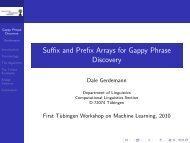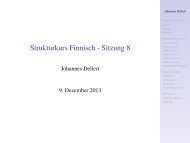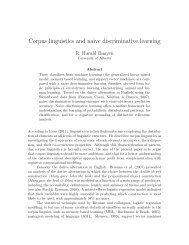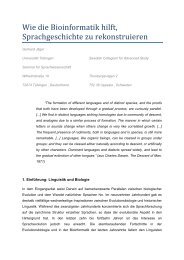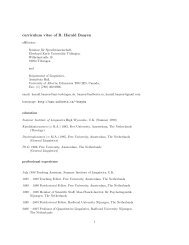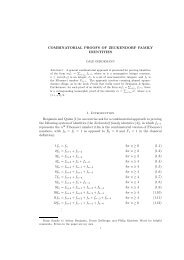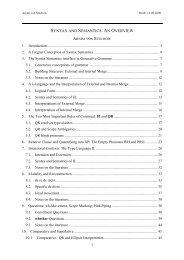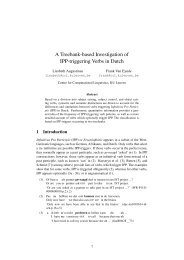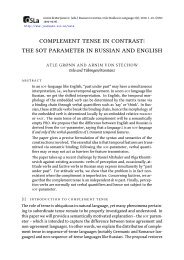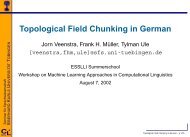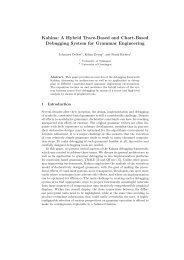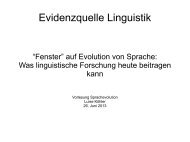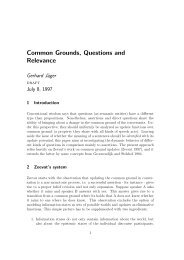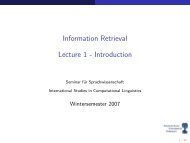Feature Deletion under Semantic Binding - Seminar für ...
Feature Deletion under Semantic Binding - Seminar für ...
Feature Deletion under Semantic Binding - Seminar für ...
You also want an ePaper? Increase the reach of your titles
YUMPU automatically turns print PDFs into web optimized ePapers that Google loves.
Arnim von Stechow<br />
be deleted <strong>under</strong> agreement, here *ind *pres.<br />
(64) ….Fritz wants *pres l … t 1 pres PRO to sleep *pres<br />
For some reason, neither German nor English have an infinitive future, but they have an<br />
infinitive perfect formed by means of the auxiliaries haben/sein. These have the feature<br />
*pres, and the perfect meaning of haben-infinitives is due to the fact that these auxiliaries<br />
syntactically select a past participle. 12 Consider an example:<br />
(65) a. Fritz muss *pres*ind gearbeitet *< haben *pres .<br />
b. w 1 ind t 1 pres must *ind*pres l w 2 ind t 3 < [t 3 < t 2 ] Fritz have *pres worked *<<br />
The difference between English and German temporal auxiliaries may be summarised<br />
as follows, where the “Present Perfect Puzzle”, which arises with the finite form of<br />
have in English, is ignored. 13<br />
(66) English will may be a temporal quantifier and therefore a time binder. The perfect<br />
auxiliaries haben/have are pure tense markers carrying the feature *pres.<br />
I conclude this section with a remark on the ambiguity of the English modals with respect<br />
to the temporal auxiliary, which has been mentioned in (28). The example was the<br />
sentence John might have won, The mystery to be explained is why the sentence can<br />
express the same proposition as the German sentence (28c), i.e., Hans hätte gewinnen<br />
können.The following syntactic stipulation for English might do the job:<br />
(67) might, could, should, ought either have the feature *pres or no feature at all.<br />
Here is a comparison of the two constructions at s-structure, where subject raising is<br />
neglected.<br />
(68)<br />
John might have won<br />
θθ<br />
V<br />
might<br />
VP<br />
* < * pres<br />
VP<br />
* < * pres<br />
V<br />
* pres<br />
have<br />
VP<br />
* <<br />
John won<br />
Hans hätte gewinnen können<br />
VP<br />
V<br />
* < * pres<br />
hätte<br />
VP<br />
VP<br />
Hans gewinnen<br />
V<br />
können<br />
Since might is feature less, the features *



